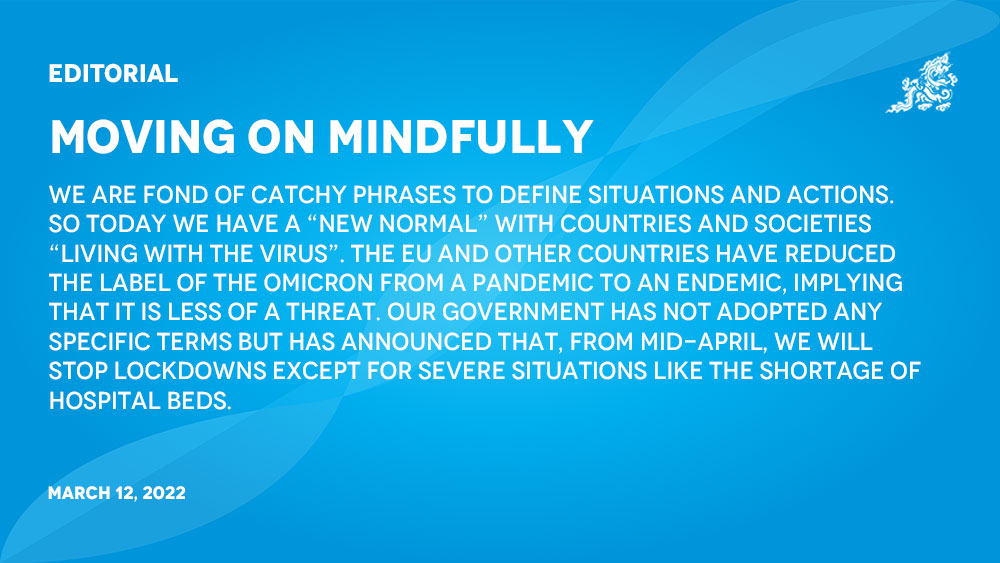We are fond of catchy phrases to define situations and actions. So today we have a “new normal” with countries and societies “living with the virus”. The EU and other countries have reduced the label of the Omicron from a pandemic to an endemic, implying that it is less of a threat. Our government has not adopted any specific terms but has announced that, from mid-April, we will stop lockdowns except for severe situations like the shortage of hospital beds.
We know that this will mean a wider spread of the Covid virus, currently the infectious Omicron. And it means that the sick, the old, and the weak are at greater risk. Which then means that His Majesty’s priority of saving lives will require close attention. It is a decision that the government has made, based on scientific research, trends in other countries, and our own experience. Most important, the vaccination has been a success, now including children as young as five years.
Some of the pressure came from the people. There are those who are switched on to global trends and perceive greener pastures. Then there are those who are cooped up in small spaces with full or extended families, needing breathing space. And there are some of us who complain because we always complain.
We need to upscale our discourse… move from complaints to suggestions, share our personal research and findings with the government and society. Informed people contribute good ideas and suggestions. Our government functions with its strengths and weaknesses and constructive feedback is always valuable.
Families and communities need to help protect the vulnerable. If our experts update us on the status and protocols, the government keeps services running, the media and CSOs share the right information, we could be the extended family we often claim to be. We need to understand the situation … what is a red flat, a red building, a red zone?
The vital message, with the relaxation of lockdowns, is that people have to take on more responsibility. No, the government has not given up on us. It is asking for support and cooperation. It is a pragmatic approach to get back to our studies, our businesses, our work, our lives, knowing that the problem has not gone away. It would help if broad plans, benchmarks, and the next steps are shared in advance, because today we are speculating on policies day to day and speculation fans rumours.
Moving into the third year of the pandemic, we draw on what we have learnt to adjust our lifestyle, meaning reduce unnecessary movement, get used to masks and hand washing, and avoid crowds, Bhutan being one of the few places that we have such a luxury. It is not surprising that people are returning to their villages because it is safer and less claustrophobic.
The bottom line is that we have survived and thrived because of our natural sense of caution. And the overall scenario will not change. We are affected, in no small measure, by what happens in our region and around the world. This is the reality that we have to live with… and deal with.


